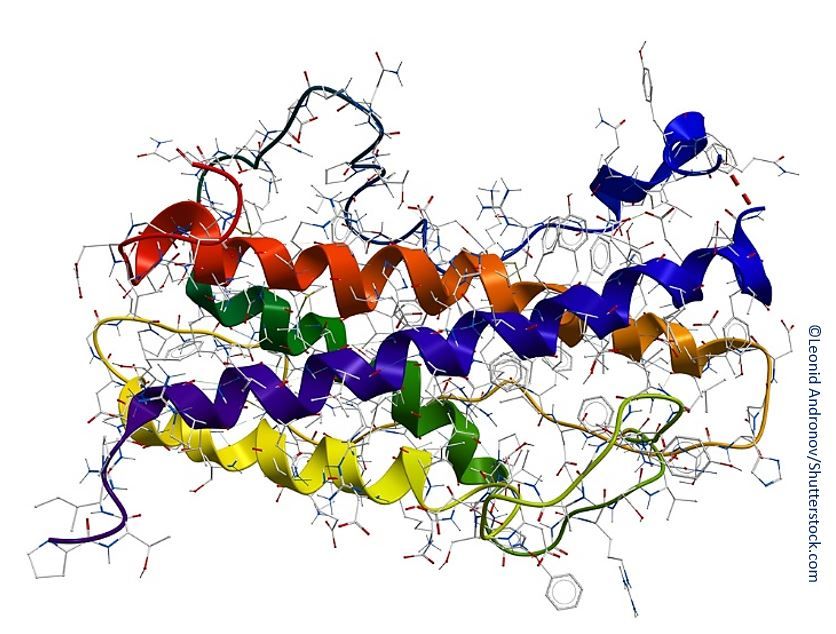Article
AGHD Treatment: An 8-question Risk-vs-Benefit Quiz
Growth hormone replacement therapy in adults is effective, but not risk-free. Find out what you know about the good vs not-so-good.

A recent review published in the International Journal of Molecular Sciences has synthesized the most current data surrounding growth hormone (GH) replacement therapy in adults. We reviewed the article and developed 8 questions on the benefits and risks of therapy for adult GH deficiency (AGHD) as it relates to body composition, bone metabolism, cardiovascular risk factors, quality of life (QoL), mortality, and neoplasms.
Question 1.
Please click here for answer and next question.
Answer: E. All of the above. GH replacement therapy has been associated with a decrease in fat mass and an increase in lean body mass, including tissue hydration and skeletal muscle mass. The current review cites a recent meta-analysis of 22 trials that found an increase in lean body mass of 2.61 kg in GH-treated subjects vs 0.04 in the placebo group; fat mass declined by 2.19 kg (GH) vs 0.31 kg (placebo). The observed changes were dose-related.
Question 2.
Please click here for answer and next question.
Answer: A. True. AGHD is generally not associated with reduction in bone mass. Also, research shows that GH replacement therapy in adults increases bone mineral density and also supports peak bone acquisition in patients who have persistent GHD during the transition from adolescence to adulthood.
Question 3.
Please click here for answer and next question.
Answer: D. All of the above. Female gender, patients with low baseline QoL scores, and those patients with a previous history of acromegaly who subsequently present with GHD are shown to have marked improvements in QoL scores after treatment. It has been observed that the majority of improvement occurs during the first 12 months of GH replacement, however beneficial effects appear to be durable.
Question 4.
Please click here for answer and next question.
Answer: A. True. GH treatment has been shown in some studies to significantly increase levels of Lp(a). One study found an increase in atherosclerotic plaques after 6 months of GH replacement in adults with previously untreated congenital GHD, the lesions believed to be linked to mutation of the growth hormone releasing hormone receptor.
Question 5.
Please click here for answer and next question.
Answer: D. A and B. Patients who are obese or have a family history of T2DM are particularly vulnerable to these effects and should closely monitor their glucose status during GH therapy. GH replacement therapy is known overall to reduce insulin sensitivity and increase blood glucose and can also cause an increase in A1c. Such changes have been noted at 6 months after treatment initiation and to persist at 2-year follow-up. Results are similar regardless of dose and duration of treatment. In one randomized, double-blind, placebo-controlled trial, diabetes appeared in 4% of subjects and carbohydrate intolerance in 20% after 12 months.
Question 6.
Please click here for answer and next question.
Answer: D. All of the above. Endocrinologists should avoid initiating GH therapy in patients with active malignancy and should treat with caution those patients with advancing age and a personal or family history of cancer.
Question 7.
Please click here for answer and next question.
Answer: A. True. While there is an increased mortality rate among patients with hypopituitarism, GH therapy has not been shown to improve survival among patients with GHD.
Question 8.
Answer: F. A, C, and D. Women, elderly, and overweight patients have a higher risk of developing water retention while on GH therapy. Common side effects of water retention include edema, arthralgias, myalgias, and paresthesias; dose reduction will usually mitigate these symptoms.
References:
DÃez JJ, Sangiao-Alvarellos S, Cordido F. Treatment with growth hormone for adults with growth hormone deficiency: benefits and risks. Int J Mol Sci. 2018;19:893.




